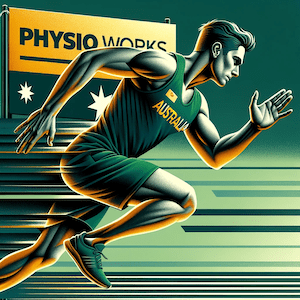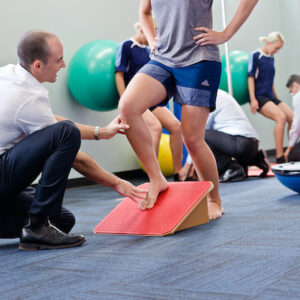Mastering Sports Injury Management: A Physiotherapist’s Guide to Recovery
Introduction
Experiencing a sports injury can be a significant setback, not just for your athletic performance but also for your daily life. With the evolving landscape of sports medicine, understanding the best practices for injury management is crucial. This guide, rooted in the latest research and a physiotherapist’s perspective, aims to provide you with essential insights into effectively managing sports injuries.
Understanding Sports Injuries
Sports injuries, ranging from mild sprains to severe muscle tears, can occur in any physical activity. The key to a successful recovery lies in not just treating the injury but also understanding the mechanics behind it. As physiotherapists, we focus on the root cause of your injury to prevent future occurrences.

Immediate Steps Post-Injury
- Rest: When you suffer an injury, the immediate response should be to rest. Cease any activity that exacerbates your pain. The first 48 hours are critical – during this period, avoid movements that might worsen the injury.
- Ice Therapy: Apply ice packs to the injured area for 20 minutes every two hours. This method is effective in reducing pain and swelling. It’s particularly beneficial for acute injuries like sprains, strains, and bruises.
- Compression: Utilise a compressive bandage or support. It helps in minimising swelling and provides support to the injured area, aiding in the formation of new scar tissue.
- Elevation: Elevate the injured part above the level of your heart. This technique is beneficial in reducing swelling, especially for limb injuries.
When to Apply Heat
After the initial 48-hour period, if the acute swelling has reduced, gentle heat application can be beneficial. Heat therapy enhances blood flow and can help in relaxing tight muscles and easing pain.
Professional Advice: Seeking Physiotherapy
- Early Intervention: Research underscores the importance of early physiotherapy intervention. Beginning treatment within a few days post-injury can accelerate healing and reduce pain more effectively.
- Tailored Treatment Plans: Physiotherapy offers a range of treatments, including joint mobilisation, massage, and electrotherapy, each tailored to your specific needs.
- Exercise Prescription: We design personalised exercise programmes not just for rehabilitation but also to prevent re-injury.
- Biomechanical Analysis: Understanding your movement patterns helps in identifying potential areas of improvement, thus reducing the risk of future injuries.
Managing Pain and Medication
Consult with a healthcare professional regarding pain management. Over-the-counter painkillers or anti-inflammatory drugs can be effective but should be taken under guidance, considering your overall health and any potential side effects.
The Role of Nutrition in Healing
Nutrition plays a vital role in healing. A balanced diet rich in proteins, vitamins, and minerals can significantly enhance your body’s ability to repair itself.
Returning to Activity: The Safe Way
- Gradual Resumption: Don’t rush back into activity. Gradually increase the intensity and duration of your workouts, under guidance.
- Listen to Your Body: Pay attention to your body’s signals. Any discomfort or pain is a sign to slow down.
Preventing Future Injuries
- Regular Exercise: Maintain a regular exercise routine to strengthen muscles and improve flexibility.
- Proper Equipment: Use appropriate sports gear and equipment.
- Warm-Up and Cool Down: Always start with a warm-up and end with a cool-down session.
Conclusion
Dealing with a sports injury requires patience and proper care. By following these guidelines and seeking professional advice, you can ensure a safe and speedy recovery. Remember, each injury is unique, so it’s essential to tailor the recovery process to your specific needs.
What To Do?
If you’re uncertain about any aspect of your injury or recovery process, consult a physiotherapist. Early and professional guidance is the key to a swift and effective recovery. For further information, feel free to contact us.

Related Articles
- Sports Physiotherapy
- Sports Physio Treatment
- Acute Sports Injury Clinic
- Sports Physio FAQs
- Sports Insurance



